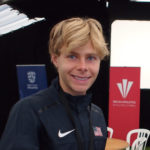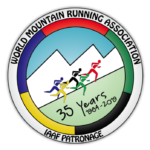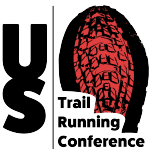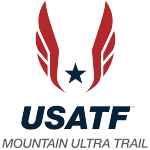
Trials of Miles for the Legs and Mind
It’s not about how many miles you run but about how and why you run those miles that determine the kind of runner (and human) you are becoming.
In her first book, The Examined Run: Why Good People Make Better Runners, philosopher, assistant professor at Christopher Newport University (Newport News, VA), world-class trail runner, mother, and now author Sabrina Little explores philosophical themes such as the one above that ask deeper questions about running than most of the running community (coaches and influencers included) typically ask. The philosophical pondering about what gives us purpose and makes better societal role models may hardly seem like the types of discussions runners and running media would have, but Little argues to her readers that we need to be asking more of these questions if we want to make the most out of our running practice and the lifestyle it provides us. Running, like philosophy, is a practice as old as human civilization itself. Both running and philosophy have been shaping each other for centuries in ways that most don’t realize. Little shows us how.
“What was the secret, they wanted to know; in a thousand different ways they wanted to know The Secret. And not one of them was prepared, truly prepared to believe that it had not so much to do with chemicals and zippy mental tricks as with that most unprofound and sometimes heart-rending process of removing, molecule by molecule, the very tough rubber that comprised the bottoms of his training shoes. The Trial of Miles; Miles of Trials.” — Once a Runner by John L. Parker
The quote above comes from the “cult classic” running novel, Once a Runner, a fictional story of the main character Quenton Cassidy and his all-consuming pursuit of competitive running. The book makes strong philosophical inquiries into what makes an elite runner, as evidenced throughout the book and in the quote above, through attitudes of relentlessness and a kind of all-in mentality. Having read this book, I couldn’t help but put it in conversation with Little’s work because of the way both works approach deeper philosophical questions about running and human character.
In contrast to Once a Runner, however, Little’s book is not a fictional novel but a very clear dissertation-style analysis that interweaves classical philosophical ideas (and philosophical problems) with personal running anecdotes as well as extensive knowledge about the sport that Little has become an expert on through her career as a professional runner. Also worth noting is that Little’s analysis in this book would likely challenge some of the philosophies presented in Once a Runner, such as its attitudes towards competitiveness and the sacrifices Cassidy makes to achieve what he considers a peak in life at only twenty-six years old. I find myself wanting to go back and reread Once a Runner with the new philosophical lenses I gained from reading Little’s work.
Another interesting aspect of Little’s decision to write a running philosophy book is that it is essentially a “cross-over text,” in other words, a text that could be read and enjoyed by runners as well as by a philosophy or ethics class. As an assistant professor and professional runner, Little is perfectly positioned to weave her two passions in a way that’s relatable while keeping a clear focus on how to inform readers about specific philosophical principles they can apply to their running and life. If the Oxford University Press logo on the back of the book doesn’t remind you of college textbooks, there will certainly be parts of Little’s writing style that will. Get ready to put your thinking cap on and take notes!

It’s Always The Greeks
Throughout the book, Little references many philosophers and roots her philosophical inquiries in Western, largely Greek philosophy. Her extensive thirty-six pages of notes at the end of the book include citations from philosophers such as Mandeville, Aristotle, Plato, Kierkegaard, Aquinas, and Dante. Among the first and most thoroughly explored in this book is Aristotle.
In Ancient Greece, athletics was a large focus of society (ex: the original Olympic Games), and these athletic practices were also supported and commented on by philosophers such as Aristotle as a practice for cultivating societal virtues that could lead to better lives. The philosophical study of virtue itself, referred to as Virtue Ethics, is a large focus of Aristotle’s work, as well as a large focus of this book. Little expands on Aristotle’s thoughts of virtue-building through athletics with a specific running angle, “it might be the base that every day, a runner wakes up and covers miles. But if her pacing is imprudent, her desires intemperate, her inclinations uncourageous, or her motivations awry, she is practicing disagreeable qualities that she will very likely carry into the rest of her life.”
Not only is Little’s harkening to Greek antiquity unique in the running genre (and not something many sponsored distance runners do in their writing), but it adds a clear focus on some of the most basic and important principles one can study in life — human character and virtue. Whether you’re a fan of the Greeks or stem from a Western background, cultivating virtue is one of the most foundational practices to Islamic, Jewish, Buddhist, Chinese, and Hindu cultures all around the world. Focusing on the Greek study of virtue means approaching concepts at the core of what it means to be human — runner or not, which is relatable to almost anyone.
I Want To Be Just Like…
Using the lens of virtue ethics, Little comments in the book on concepts such as training emotions, performance-enhancing virtues and vices, mental and physical health, and—most interestingly to me—emulation and idols. This topic (covered in chapter four) is relevant and relatable to all types of readers, given that the sports figures children grow up idolizing are some of the most famous humans on the planet.
Case in point, The Sun (British tabloid) sent reporters around the world in the early 2000s to search for a single person in the world who hadn’t heard of footballer David Beckham. They eventually found a shepherd in Chad, Africa, but the story exploded in popularity as their work revealed that the majority of people in every country on the planet had indeed heard of Beckham.

Whether or not we agree about the attention given to athletes such as Beckham, it’s certainly worth noting the impact these athletes can have on society as positive or negative role models. Are we idolizing the traits of these athletes that will make us better humans? Are we idolizing their cunning and aggressive pursuit of perfection in sport that may lead to sacrifices in other aspects of life? These are the kinds of questions Little explores. As someone who has taken much inspiration from my sporting idols and adopted their attitudes and practices into my own trail running career, Little’s arguments in this chapter hit close to home. I expect they will do the same for many readers who idolize athletes’ superhuman performances in sports more than closely examine their virtues and human qualities.
Little analyses her personal running idols, including Courtney Dauwalter, Clare Gallagher, Dylan Bowman, Sara Hall, and Jim Walmsley. She first distinguishes the ways in which one can imitate idols and argues that most people don’t completely understand which characteristics of their idols are worth or are even achievable pursuing. Little states on this point, “I may never be able to emulate the long, loping stride of Jim Walmsley or achieve the aerobic efficiency of an Olympian in the 5,000-meter track event. These traits are not ‘open to me’ because of physiological constraints. But I can emulate these athletes in their perseverance, humility, humor, and courage. These qualities are imitable or available. I can improve in these respects.”
Little encourages us to find meaningful growth by aspiring more closely to the virtues these professional athletes express, not just their athletic achievements, how they dress, how they train, etc. In a world where we’re bombarded by the influence of famous sports figures and influencers on social media, Little’s work can assist us in discerning which qualities of these athletes (if any) we should admire and emulate to become better humans.
“The Examined Run is the beginning of a conversation about how to take our happiness seriously and live good lives in and out of the sport. I hope that my readers will continue to ask these questions and to live an examined run.” — Little
Overall, the conversation between philosophy and modern running culture feels like one that has been waiting for an author to explore in more detail. Little’s expertise in both areas allows her to do this perfectly. She shows readers that the practices of becoming better humans, as well as better runners, are more intertwined than most realize. As Little states several times throughout the book, “Virtue is the carbon-plated shoe of the soul.” In other words, magic super shoes (read my take on carbon-plated trail shoes here.) might improve your running, but an examined running life will equip you with superpowers on your feet as well as in your soul!










